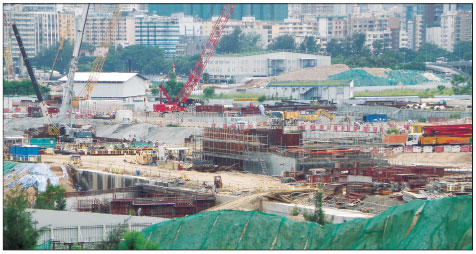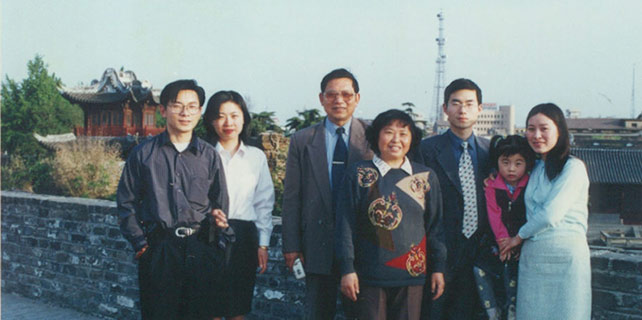Market complexities make solving the housing shortage harder
|
The government is resolved to address Hong Kong's long-standing housing shortage problem with the aim of meeting its supply target of 460,000 units over the next decade. Provided to China Daily |
In his latest policy speech to the legislature, Chief Executive Leung Chun-ying gave an impressive exposition of his efforts in increasing the supply of land to address the housing shortage problem that is a major source of public discontent.
He also said high property prices that barred many aspiring first-time homes buyers from realizing their dream remained a challenge. The problem lies not in the lack of efforts on the part of the government but rather in the complexity of the real estate market that is dominated by an oligarchy consisting of a handful of large developers.
The interlocking interests of the government, which is the biggest landlord in town, and the major developers responsible for building the majority of the housing units for sale to the public is widely considered to have distorted the free market mechanism. As a result, the increase in land supply does not necessarily lead to a price decline.
Take for example the redevelopment of the old Kai Tak Airport site. Parcels of land on that site were sold at record prices to mainland enterprises which outbid all the large local developers in a high-profile government auction. That represents a sizable chunk of revenue for the government.
An estimated 16,000 new residential units will be built on the entire site. Despite the projected large supply of new flats, nobody is naive enough to believe that housing prices in that district will come down.
On the contrary, a rough calculation by property experts shows that the developers who paid dearly for the Kai Tak land will have to price their apartments considerably higher than the prevailing property prices in the vicinity to make a reasonable profit on their investments. These developers are willing to take the risk because of the public's seemingly insatiable demand for housing.
That demand is fed by public expectations of further increases in property prices. Such expectations have helped convince many prospective homes buyers that if they don't buy now, they will never be able to afford it later.
Such is the state of the Hong Kong property market. The projected increase in housing supply combined with government market cooling measures can help slow down the price hike. It would probably take a confidence-draining financial crisis to bring down property prices. By then, nobody would want to buy.
















